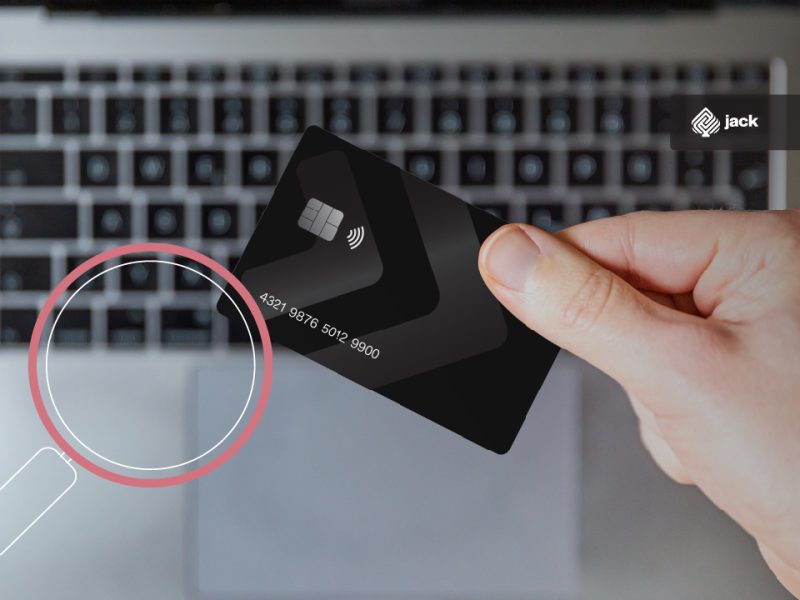The use of credit cards is often seen as a financially unwise decision. One of the reasons is that it can make it difficult for someone to control their expenses.
However, there are various benefits of using a credit card that many people are unaware of. For example, to obtain benefits such as rewards, points, or cashback.
See Also: Easier, Automatic, and Real-Time Transactions with API Disbursement
In addition to personal use, credit cards can also be used for business purposes, such as paying business bills, paying vendors, and even paying taxes.
So, what are the differences between personal and corporate credit cards? You can find the answer to this question in this article.
Other information, such as the risks, benefits, and information about corporate credit cards, will also be thoroughly discussed here. So, read on until the end!
What is the Difference between a Corporate Credit Card and a Personal Credit Card?

Although both are credit cards, there are several differences between a corporate credit card and a personal credit card. Before delving deeper, it would be better for you to understand the definitions of both types of credit cards.
A personal credit card is a credit card issued by a bank or financial institution to an individual as an electronic payment tool to meet their personal needs. Every time the credit card is used, the charges are automatically included in the cardholder’s monthly bill.
On the other hand, a corporate credit card, as the name suggests, is issued in the name of a company. The corporate credit card can be used by employees of the company to meet business transaction needs, such as bill payments, business trips, and purchasing goods or services needed by the company.
From the definitions, you may already be able to conclude that one of the differences between corporate and personal credit cards is in terms of ownership, where corporate credit cards are made in the name of the company while personal credit cards are made in the individual’s name.
In addition, there are other differences between the two types of credit cards. What are they? Here is the information:
1. Purpose
The decision to create a personal credit card is usually made to meet personal needs. For example, to earn reward points, facilitate online transactions, or make it easier to shop abroad.
In contrast, companies create corporate credit cards with the purpose of being a business transaction tool that can be used by employees to support their work. The expenses are automatically recorded, so the use of the credit limit for non-work-related matters can be avoided.
2. Supervision and Control
Another difference between personal and corporate credit cards lies in the supervision and control of usage.
This means that the use of a personal credit card is managed and monitored by the cardholders themselves, who have control and responsibility for the credit card. Meanwhile, corporate credit cards are managed and monitored by the company with tighter control and supervision than personal credit cards.
3. Payment Responsibility
Unlike personal credit card holders who are responsible for card management and monthly bill payments, corporate credit card holders are not responsible for these matters.
The company makes the bill payments because the expenses are incurred for the company’s needs.
Why Do Most Founders Use Personal Credit Cards?

It is undeniable that many company founders prefer to use personal credit cards as a payment tool, especially for early-stage companies.
Why is that? Here are some reasons why many founders choose to use personal credit cards for their businesses:
- Ease and Speed: The issuance of corporate credit cards usually requires complex requirements and stricter verification processes. For newly established companies, this can be quite tiresome. That’s why personal credit cards become the preferred choice for some founders.
- Flexible, it means personal credit cards can be used for both business and personal purposes simultaneously, and can be used as a payment tool in various places and transactions.
- Rewards and cashback. Many business founders also choose to use personal credit cards to get the rewards and cashback offered by credit card issuers. It’s like killing two birds with one stone, fulfilling business needs while obtaining attractive rewards and cashback.
Although the use of personal credit cards for business is considered more advantageous, especially for newly established businesses, there are pros and cons to this approach.
The three points mentioned above, namely easy and fast, flexibility, and attractive rewards and cashback, are the pros of using personal credit cards for business.
On the other hand, the cons include:
- The use of personal credit cards can complicate business financial management as business and personal expenses get mixed up.
- It complicates the process of separating business and personal expenses during tax filing and bookkeeping.
- As the business grows, the expenses for business needs also increase. Considering that personal credit card limits are smaller than corporate credit cards, this can become a problem because the credit card limit may not be sufficient to meet business needs.
- Personal credit card holders are fully responsible for credit card bills, including interest and late payment fees. If business income is not enough to cover business expenses, it can be detrimental to the credit card holder.

What are the Risks of Corporate Credit Cards?

Although corporate credit cards have various benefits for companies, there are also several risks associated with their use.
For those who own a company and have a corporate credit card, here are some risks you should be aware of:
- Credit Card Misuse, meaning similar to personal credit cards, corporate credit cards are also vulnerable to misuse. For example, employees who have access to the credit card may make purchases that are not related to the company’s needs or even use the card for personal purposes.
- Data breaches that can pose risks of financial information misuse and misuse of corporate credit card data.
- Financial losses, continuing from the previous point, where identity theft occurs and is used for large or important transactions, there is a significant potential for financial loss. Therefore, make sure that the corporate credit card data of your company is not distributed to irresponsible parties.
What are the Benefits of Corporate Credit Cards?

Despite having some risks, the use of corporate credit cards can also provide many benefits to companies.
What are they? Here are the points:
- Easier financial management, such as monitoring expenses, creating company reports, and real-time monitoring.
- Facilitates business transactions for purchasing goods and services both online and offline. This makes the process of buying goods or services for company purposes faster and easier.
- Improves administrative efficiency because the use of corporate credit cards does not require prior approval before using them. Instead, reporting the use of corporate credit cards is done after the purchasing or payment process for company needs has been completed.
- Some types of corporate credit cards offer additional protection, such as travel insurance, accident insurance, and protection against loss and theft of credit cards.
- Higher credit limits compared to personal credit cards give companies more flexibility in conducting larger business transactions.
How Difficult is it to Obtain a Corporate Credit Card?
Interested in getting a corporate credit card for your business? If so, you need to understand that each bank or credit card provider has different requirements for applying for a corporate credit card.
Furthermore, given its broader scope, obtaining this card tends to be more challenging compared to obtaining a personal credit card.
However, there’s no need to worry because this article will also provide information on several important factors that make obtaining a corporate credit card much more difficult than a personal credit card.
- Company size: Before issuing a corporate credit card, banks or credit card providers will consider the size of the company, such as the number of employees and revenue, to determine if the company qualifies for a corporate credit card.
- Company credit history, which includes checking debt payment records and credit records to determine if the company qualifies for a corporate credit card from a bank or credit card service provider.
- Company financial reports, including profit and loss statements and financial balance sheets, to determine the company’s ability to pay credit card bills on time.
- Legal checks for the company, such as business permits and other supporting documents, to ensure that the company operates legally and complies with applicable regulations.
Does a Corporate Credit Card Have a Limit?
Yes, just like a personal credit card, a corporate credit card also has a limit. The difference lies in the amount of the limit, where a corporate credit card usually has a higher limit than a personal credit card. Why? This is due to the more complex expenses of a company related to business operations, such as business travel, purchasing goods or services, and monthly bill payments.
If a company has more than one corporate credit card, it’s possible that the limits may differ. The limit for corporate credit card holders depends on the bank or credit card issuer and the cardholder’s risk profile.
The cardholder’s risk profile will determine the amount of credit limit provided. As an example, a corporate credit card limit can range from hundreds of millions to billions of Indonesian rupiah, depending on the company’s size and the business needs and expenses involved.
It’s important to note that the credit limit provided is subject to change due to various factors, such as bank policies or credit card issuers, as well as the evaluation of the risk profile and performance of both personal and corporate cardholders.
How Do Banks Make Money from Corporate Credit Cards?
Corporate credit cards are one of the services offered by banks. Naturally, this service contributes to the bank’s revenue. Here’s how banks make money from the corporate credit card products they offer:
- Annual fees, which are charges imposed on credit card holders as compensation for the services and facilities provided by the issuing bank.
- Interest rates. Yes, interest is one of the significant sources of income for banks. Regarding credit card interest, if a company fails to pay the bill, the bank will charge interest on the unpaid balance. The interest rate varies for each bank, so you can visit the website of the bank issuing the credit card to find out the details.
- Late payment fees, which are charges imposed on corporate credit cardholders if the bill is not paid on time.
- Transaction fees, which are charges imposed on corporate credit cardholders each time the card is used as a payment method.
Spend with Flexibility, Anywhere with Jack
Can You Withdraw Cash from a Corporate Credit Card?
In addition to being used for direct payments, a corporate credit card can also be used to withdraw cash from ATMs or banks that issue the credit card.
However, typically, cash withdrawals from a corporate credit card will incur higher cash advance fees compared to direct purchase transactions using the credit card, usually around 2% – 4% of the total withdrawal amount.
Moreover, cash advances with a credit card also accrue interest, the amount of which depends on the issuing bank. It can add up, right?
Therefore, it’s advisable for corporate credit cardholders to withdraw cash only when it’s absolutely necessary.
What Do You Use a Corporate Credit Card For?
As mentioned earlier, a corporate credit card can be used for various business purposes such as purchasing goods or services, business travel, and bill payments.
What falls under purchasing goods or services for business purposes? What travel expenses are covered by the company? And which bills are being referred to? Here’s an explanation.
- Purchasing goods or services refers to using a corporate credit card to support business operations. For example, office supplies, consulting services, raw materials, and so on.
- Business travel expenses involve using a corporate credit card to cover employee expenses during business trips, including airfare, hotels, transportation, meals, and other expenses incurred during the trip.
- Bill payments, as the name suggests, one of the reasons companies use a corporate credit card is to pay company bills, such as electricity and office internet bills.
Is it permissible for a company to use a corporate credit card for purposes other than the three mentioned above? The answer is yes, of course!
However, before doing so, make sure you have clear credit card usage policies and ensure that the use of the corporate credit card aligns with the business objectives and can be accessed and managed effectively by the company’s management.
How Does a Corporate Credit Card Work at the Bank?
A corporate credit card is one of the financial products issued by banks for companies or organizations as an alternative payment method.
The working process of a credit card, especially at a bank, usually involves several stages, including:
- Registration, which is the initial process of obtaining a corporate credit card. At this stage, the company will be required to provide information related to the company and the employees who will use the card. Subsequently, the bank will assess the eligibility and payment capability for the card.
- Card issuance, which is the process when the registration is approved by the bank. At this stage, the bank will issue a corporate credit card for the designated company or individual chosen by the company as the cardholder.
- Card usage, which is the stage where the corporate credit cardholder can start using the card for various business purposes. The transactions made will be recorded by the bank and charged directly to the company’s corporate credit card account.
- Bill payment, which is the stage where the company has to pay the corporate credit card bill according to the stated bill and the specified due date. If the company is late or fails to pay the bill, the bank will automatically apply interest charges and penalties.
- Expense reporting, which is the stage where the bank provides monthly reports of corporate credit card usage, including transaction details and the bills that need to be paid. With these reports, the company can easily monitor and control business expenses.
In general, the working of a corporate credit card is similar to a personal credit card. However, there are differences in features and additional services tailored to business needs and company management.
Who Pays the Corporate Credit Card Bill?
Employees assigned to make purchases of goods or services, business travel, or bill payments are usually given access to a corporate credit card by their company. The question is, who pays the bill? Is it deducted from the employees’ salaries? The answer is definitely no.
The company is responsible for paying the corporate credit card bill. This is because all expenses paid with the card are intended to run the company, or in other words, not for the personal needs of the employees who hold the card.
Use Jack for Your Business Needs
We have reached the end of this article about corporate credit cards. Hopefully, the above information is useful for you! See you in the next article!”






